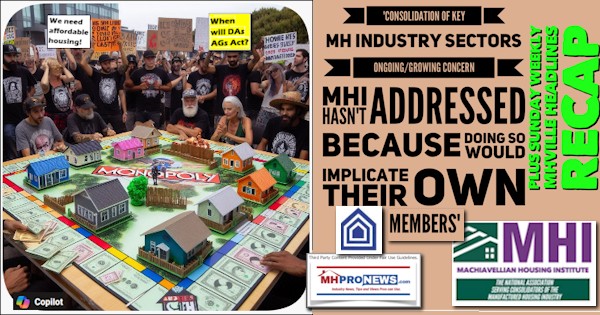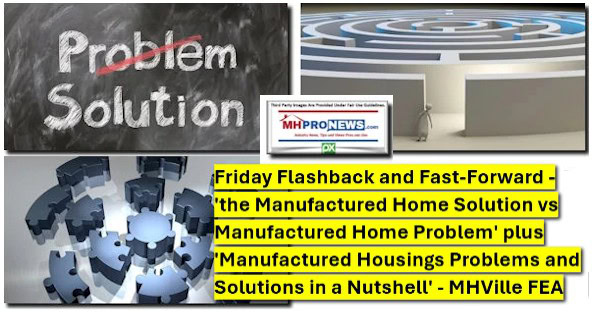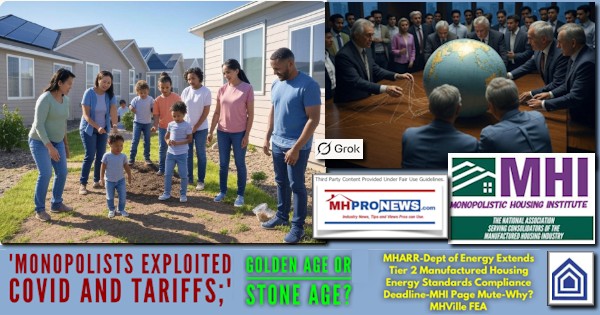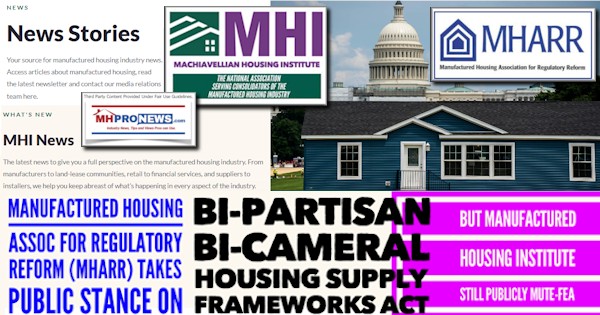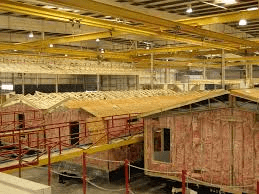
Alan Amy of Royer Homes in Opelousas, LA, who has been selling manufactured homes for 44 years, says if federal regulations changed, 20,000 more homes would sell immediately. Sam Landy, CEO of UMH Properties, Inc. says his company is doing okay renting manufactured homes. “We lend money to people who have ten percent down and 30 percent of their income covers their lot rent and finance payments. We lend them that money at only eight percent interest rate,” says Landy. He says it’s ridiculous to think they might want to sell a home to someone who cannot afford it. He states, “The current status of the law is, if we made a good faith determination that said someone had the ability to repay, and somebody second-guessed us later, the cost to litigate that would wipe out any profit we made from nine other good deals.”
Quality is up, complaints are low, the three largest trade shows are strong and growing, and production, despite the regulatory roadblocks, continues to expand, as MHProNews reported in an earlier story. Both sides of the aisle in Congress as well as consumer groups agree that federal regulations need to be modified.
As Jan Hollingsworth reported in Dodd-Frank and Manufactured Home Financing:The Place where Good Intentions and Unintended Consequences Collide, when Eric Powell tried to borrow $7500 to buy his father’s manufactured home that was sited on family-owned property in Louisiana, because of the Dodd-Frank Act that created the Consumer Financial Protection Bureau (CFPB), despite good credit the only loan he could find was at an interest rate of 35.91 percent. The monthly payment was only $350 a month. Loans under $20,000 on manufactured homes generate as much as $3000 in points and fees to originate because the CFPB classifies them as “high cost,” which drives lenders away.
While former Congressman Barney Frank agrees the measure that bears his name was not intended to affect manufactured home loans as it has, the CFPB ignores industry lenders who have tried to explain how MH lending differs from traditional mortgages. Dick Ernst, involved in MH finance for 40 years, says, “It’s been a three-year battle with CFPB, because they have the discretion to change things. It’s been very discouraging, because they have a certain mindset.” That mindset does not accept that consumers are the ones suffering from not being able to purchase a manufactured home, regardless of the interest rate, the price, or any other factor.
One reason chattel loans bear a higher interest rate is the cost of repossessing a ten to 30 ton home if the buyer should default. Another reason is the lack of a secondary market that could amass a portfolio of loans and spread the costs out over thousands of them. Originators of chattel loans have to carry their own paper.
Kovach says better education of public officials, consumers and the media would go a long way towards correcting the misconceptions that surround the MH industry. Passage of The Preserving Access to Manufactured Housing Act would not only spur the MH industry to build more homes, but that in turn would create jobs and more demand for furnishings and other home goods as well as financial services products.
The federal government is said to spend $40 billion in rent subsidies annually. Says Kovach, “Why not channel those dollars into programs that can yield home ownership via quality, appealing, affordable, energy-saving manufactured housing? Why channel dollars into the hands of those who will keep raising rents, and yield no equity for those millions involved?
Home ownership is the single best path to a higher net worth. For those who say that manufactured homes depreciate, what they fail to consider is that site-built housing dropped like a rock in value when the mortgage crunch hit in 2008. Conventional housing is artificially supported by federal policies and lending support. To deny a similar application to MH is a form of policy discrimination. Leveling the playing field helps consumers, lenders, public coffers, professionals – indeed all involved.
For the complete article, please click here. ##
(Photo credit: Manufactured Housing Institute-new manufactured homes under construction)








